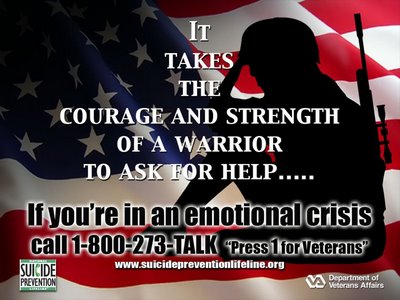I flew to Alaska last week at the invitation of the Juneau chapter of the National Alliance on Mental Illness and spent four days giving speeches and meeting with public officials and mental health advocates. Going to Alaska checked-off one more state on my advocacy list. I have now spoken in every state except for Mississippi, Arkansas and Hawaii.
Of course, saying that I saw Alaska because I visited Juneau is a bit like saying that I saw the entire lower 48 states because I spent a week in Boston. Geography has never been one of my strong suits. Even so, I always knew Alaska was huge. You really don’t have any idea how massive or beautiful it is, however, until you see — even small parts of – it.
My hostesses, NAMI Juneau Executive Director Kathryn “Katie” Chapman and community activist Sharon Gaiptman, kept me running. Literally. I was interviewed on four radio shows and by local newspaper reporter Amanda Compton. I gave five speeches in a four day period. I met with local and state mental health officials at a private dinner with the NAMI board and was able to chat with Walter L. Carpeneti, the chief Justice of the Alaska Supreme Court. In addition, I met with District Court Judge Keith Levy who is launching a Mental Health Court in Juneau. Whew!
My Juneau Alaska Experience
Punishing A Veteran Who Wanted Help

If you want to know why it is important to educate prosecutors about mental illnesses and to push for the creation of mental health courts consider the plight of Sean Duvall, a homeless Persian Gulf War veteran in Virginia.
When the 45 year-old Duvall sank into a depression last June, he considered ending his life. He wrote a suicide note to his family, put a letter confirming his eligibility to be buried in a veterans’ cemetery in his pocket, and made a homemade gun fashioned from a pipe.
But before he took his own life, he saw a telephone number for a Veterans Administration crisis line.
He called it and a counselor urged him to say put. Help was on the way. A police officer arrived and took Duvall to a psychiatric facility, where he was treated for depression and began feeling better.
This should have been a success story, especially since veterans are ending their lives at a rate of 18 per day.
Sadly, it isn’t.
Nine days later, Duvall was charged in a federal court with possessing a homemade gun and three other gun related charges that could land him in jail for forty years.
Before You Quit Your Day Job

Things authors hear:
“I just bought a copy of your book, so you should be getting a little something extra in your paycheck this month!”
“I can’t wait for our library to get your book so I can read it.”
“Is writing books all you do?”
“I’ve got a great idea. You can write it and we can split the money.”
“People tell me all the time that I should write a book about my life.”
A poll recently showed that more than 80 percent of Americans believe their life story is worth a book and more than 60 percent believe they could write a book.
The most common question I get is, “How much money do you make?” Apparently, etiquette doesn’t apply when it comes to authors.
Two Different Orange Counties: Two Different Attitudes and Outcomes
If you don’t believe it is important to have police officers undergo special training that teaches them how to handle persons who are mentally ill, then you should look at incidents that happened in Florida and in California in counties that happen to share the same name.
Orlando Police Department Sgt. Tami Edwards in Florida was dispatched to investigate a telephone call about a distraught woman who was threatening to jump from the ledge of the seventh floor in a parking garage. Sgt. Edwards, who had undergone Crisis Intervention Team training for police officers, found the woman sitting with her legs dangling over the ledge. The woman was paranoid, delusional and was talking about how government agencies were spying on her.
Because of her CIT training, Sgt. Edwards recognized that the woman had a severe mental illness. The police officer talked to her in a calm voice and took time to listen to the woman’s delusions. She was able to get close to her. While Edwards was speaking, back up officers arrived. Without warning, the woman suddenly pushed herself from the ledge.
In a remarkable act of heroism, Sgt. Edwards grabbed the woman. Click to continue…
From the Mail Bag: Vermont Mom Frustrated By System – Son Had to Get Arrested to Get Help

I receive emails every week from parents frustrated by our broken mental health system. I believe these notes paint a more accurate picture of what is happening across our nation than the often optimistic reports that I hear from our elected leaders. Here’s an example of what a mother faced recently in Vermont after her son became ill and needed treatment.
My 19-year-old son was recently hospitalized and diagnosed with schizophrenia. We live in Burlington, Vermont. He had been seeing a psychiatrist at a local center here, and started on treatment with medication. We tried several different meds for him, with the doctor seeing him once a month. We soon realized we needed to either up the dosage or change all together because my son was not getting any better. I made numerous calls to the local mental health center, explaining his anxiety, delusions, anger, and the voices he stated he was hearing.
All fell on deaf ears.
On 11/19/2011, I received a phone call from the local police station. My son had been arrested for simple assault and was found wandering the town with a knife. I immediately called the center and they sent a crisis person to the police station, who in turn evaluated him and agreed he was in need of hospitalization.
My Father’s Fall: A Reminder of What’s Important

My father fell recently. I was out-of-town so Patti rushed him to an emergency room. Fortunately, he hadn’t broken anything, but it turns out that a bone bruise is equally as painful as a broken bone. It takes time to heal, especially when you are 91 years old.
Doctors think he fell because he got out of his favorite living room chair too quickly. This caused him to black out. He insists that he was only unconscious for a few seconds. My mother says it was several terrifying minutes.
My father is from the “old school.” Even today when we go to lunch, he insists on paying the check. He is a loving and kind father, but he has always been a tough taskmaster. He expected his three children when they were young to do what he asked without question.




